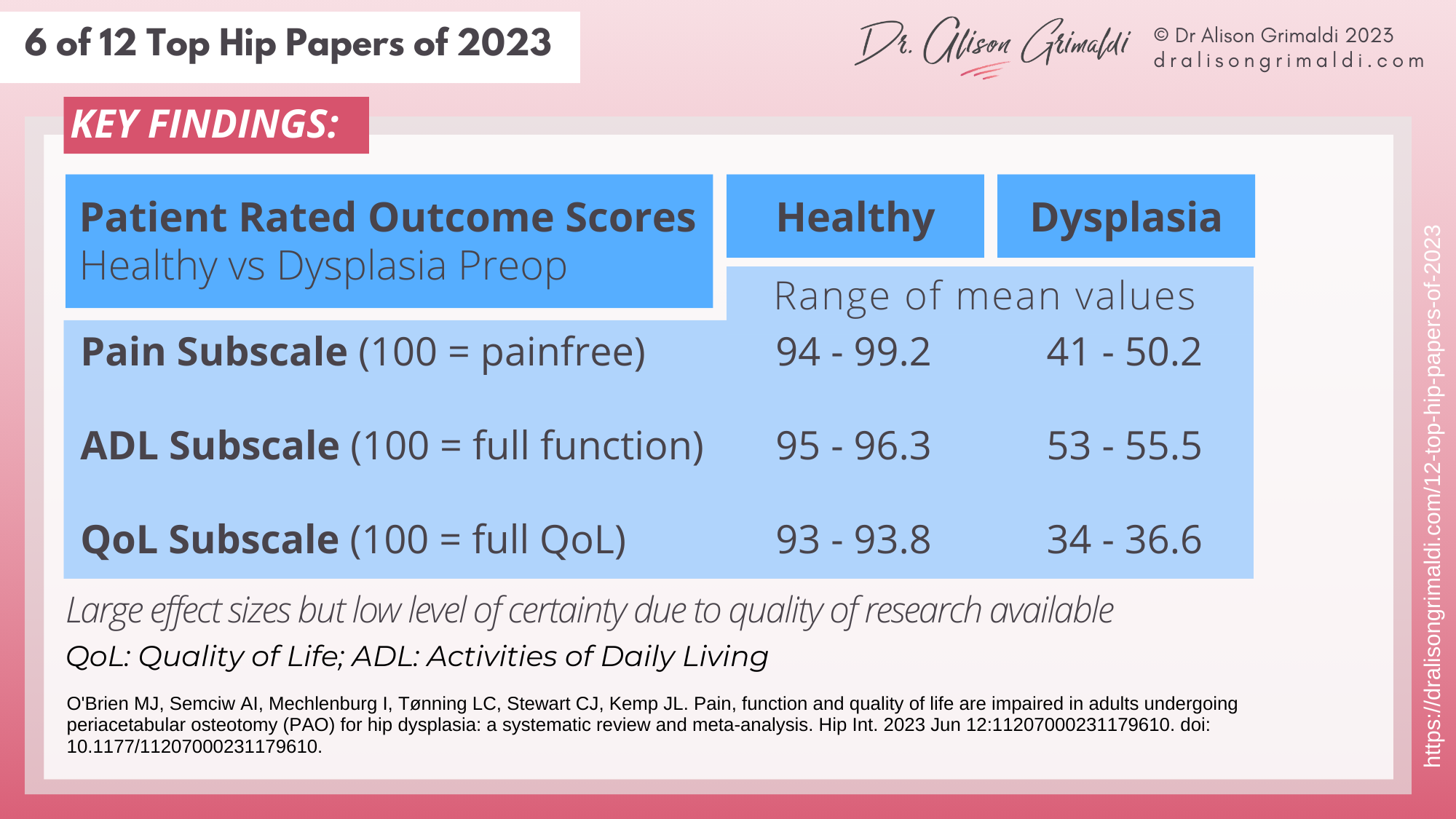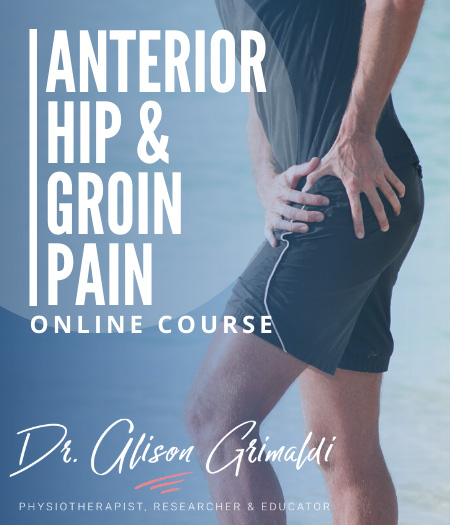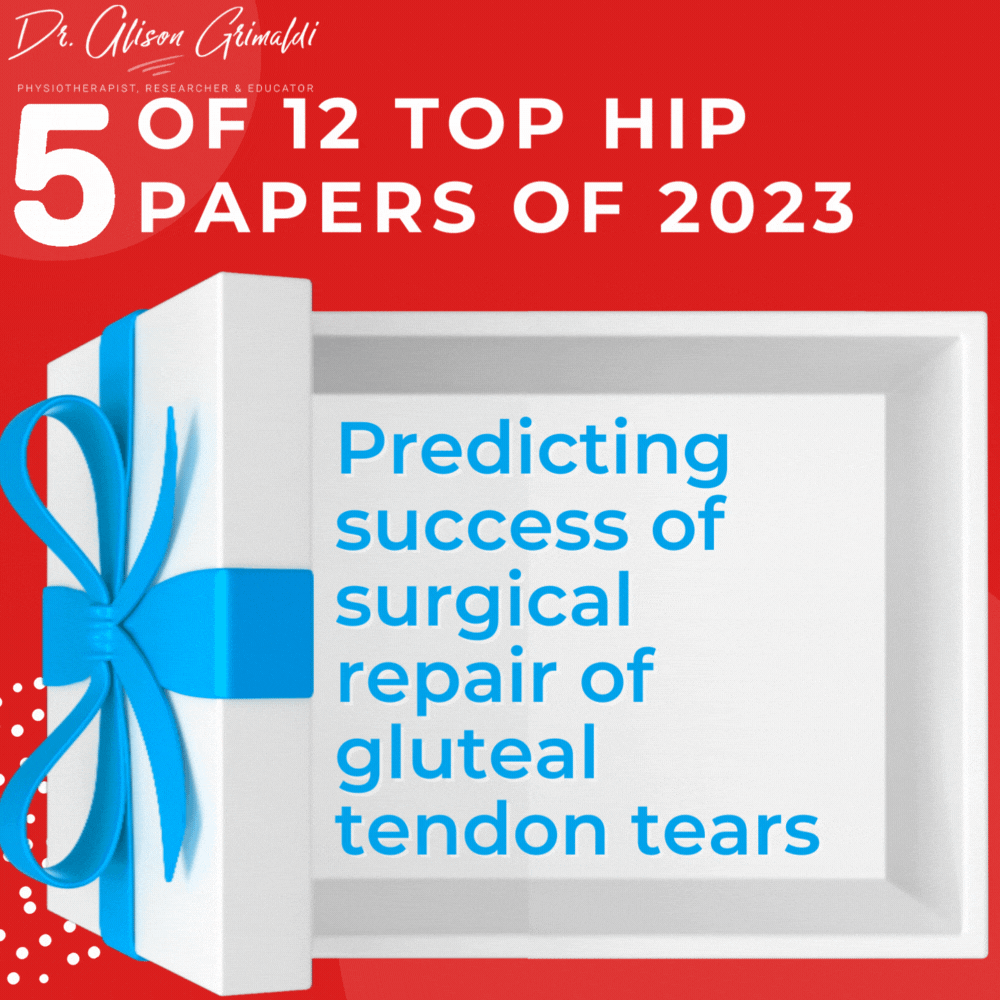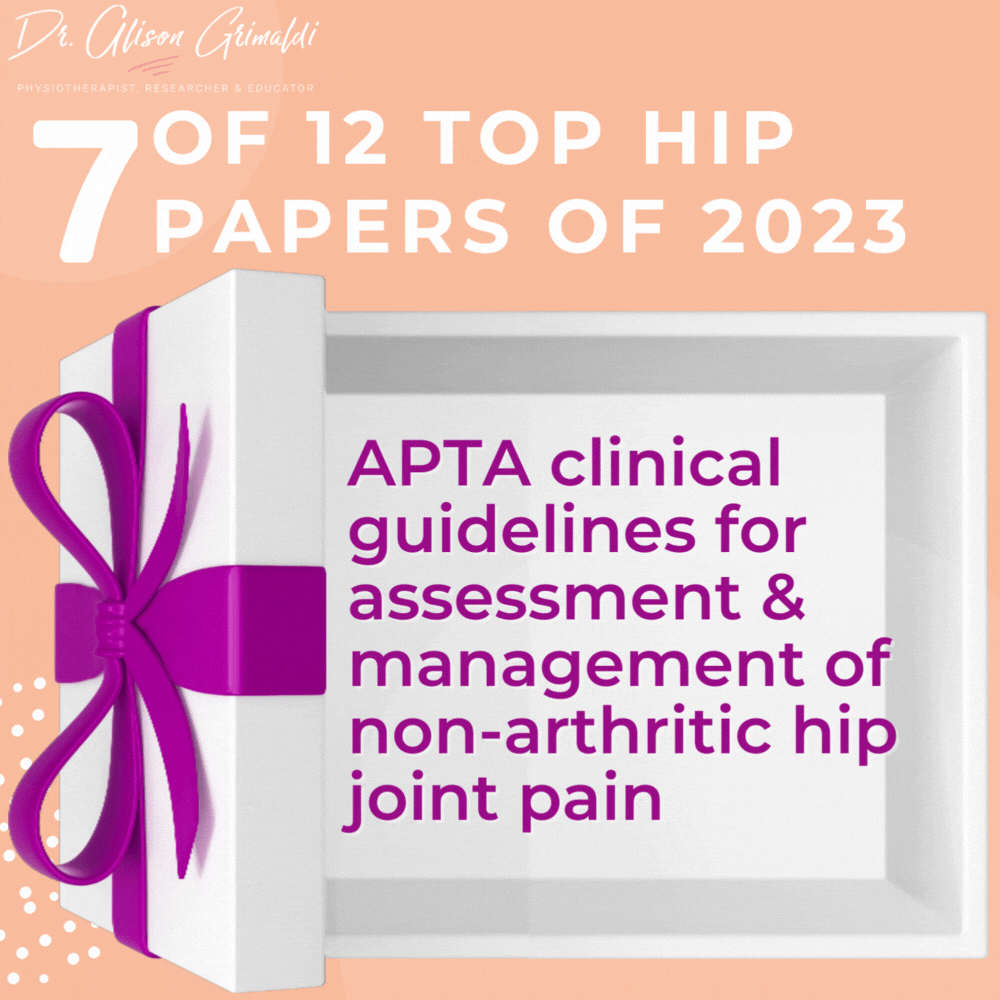6 of 12 Top Hip Papers of 2023 | Pain, Function & Quality of Life in Adults with Hip Dysplasia

It's Day 6 of my series of miniblogs featuring 12 top hip papers from 2023. Hope you've enjoyed the first 5. If you missed Day 5, you'll find a link at the bottom of this page to take you back.
For day 6 we'll be taking a look at a systematic review that reported on pain, function and quality of life (QoL) in adults with hip dysplasia.

For your convenience, we have also developed this content into a FREE 31-page full colour ebook!
Packed full of 12 Top Hip Papers - peer reviewed scientific papers from 2023, that have contributed to our understanding of hip conditions and/or the assessment or management of hip pain or injury.

6 of 12 Top Hip Papers of 2023 : Pain, Function & Quality of Life in adults undergoing PAO for hip dysplasia1
Acetabular dysplasia is still such an under-recognised condition, and yet potentially so impactful. There has been very little research on hip dysplasia in adults, compared with research on hip osteoarthritis and Femoro-acetabular Impingement Syndrome (FAIS).
Understanding the lived experience of those with acetabular dysplasia is an important foundation for future research, so this systematic review is a valuable contribution to the evidence base.
Study Aim:
This primary aims of this systematic review were to evaluate:
- differences in pain, function and QoL between adults with acetabular dysplasia undergoing periacetabular osteotomy (PAO - bony correction surgery) and healthy controls, and
- changes in pain, function and QoL following PAO surgery.
What was done:
- A systematic literature review and meta-analysis, according to the PRISMA guidelines.
Key Findings:
Sixty-two studies reporting pain, function and QoL in adults undergoing PAO for hip dysplasia were identified and data extracted and analysed. The data from 6,852 patients, with an age range of 17-45 years, was collected and pooled where possible.
Pain, function and QoL data was from patient rated outcome measures, primarily the HOOS and WOMAC scores. As you can see below, this study found that acetabular dysplasia has a large effect:
- On a pain subscale were 100 = painfree, healthy participants scored 94-99.2/100, while those with dysplasia scored 41-50.2/100.
- On an activities of daily living (function) subscale where 100 is full function, healthy participants scored 95-96.3/100, while those with dysplasia scored 53-55.5/100.
- On a Quality of Life subscale where 100 is full QoL, healthy participants scored 93-93.8/100, while those with dysplasia scored 34-36.6/100.

Despite a large effect size here, the level of certainty was low due to the quality of the available research - many surgical case series, particularly if retrospective, carry an inherent risk of bias reducing quality scores. While further high-quality research is still required, I think we can safely assume that acetabular dysplasia at a severity level that is requiring bony reconstructive surgery, has a profound impact of pain, function and QoL.
The other major finding from this review, was that:
although pain, function and QoL all improve after PAO surgery, they do not reach the same level as healthy participants 1-2 years after surgery.
One study also provided limited evidence that outcomes were significantly poorer at 6 and 12 months after PAO in those who had undergone a prior hip arthroscopy.
Clinical Implications:
- The current evidence suggests that hip dysplasia has a marked effect on hip-related pain, function and quality of life, that is not completely restored even years after peri-acetabular osteotomy
- This study once again highlights the severe impact of dysplasia and the need for effective screening and prevention programs
This study provides good reason to increase awareness of this impactful condition and efforts to improve neonatal and early childhood screening!
Adult dysplasia is one of the most preventable conditions when picked up in infants. Prevention of acetabular dysplasia in childhood is certainly preferable to the surgical 'cure'. We also need to make sure we are diagnosing symptomatic adult dysplasia as quickly as possible and optimising our treatment protocols for best non-surgical outcomes. So much more to be done in this space. Let's stay tuned!
Like to learn more hip dysplasia and instability?
In this course, you can find information on pathoaetiology, assessment and management of pain and dysfunction in those with acetabular dysplasia, hip instability and many other joint, soft tissue and nerve related conditions. To learn more, take the anterior hip and groin pain online course, or join me in an online or practical anterior hip and groin pain workshop.
This online course is included in Hip Academy and Hip Academy members receive discounts for online workshops.
I hope you enjoyed the infographics and key learnings from Day 6 of my 12 Top Hip Papers of 2023. There are 6 more papers in this series, so use the navigational graphics below, to see what other top papers and infographics I have for you!

Have you heard about Hip Academy?
Enjoy the benefits of a world class educational Hip Program, specifically designed by Dr Alison Grimaldi to help improve your knowledge surrounding the Hip and Pelvis, and become an expert in your field.
With all Hip Courses included, enjoy all the extra inclusions, including; access to the entire eBook series, growing video library, expanding PDF resource centre, regular member meetings, forums + lots more!





